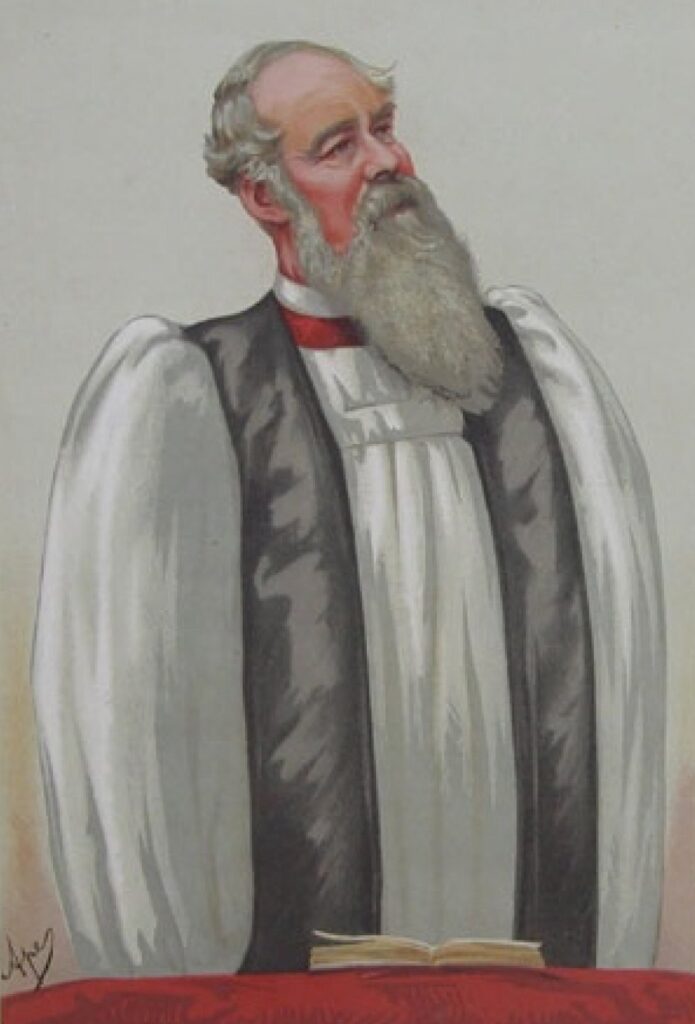
Pillars of the church
This is part of a short series about some of the key features of Christian tradition and their relationship to neurodiversity.

J.C. Ryle, Bishop of Liverpool

Further Reading
Pillars of the church 3
Spiritual experience

The third stream is seeing Christianity primarily as about emotional encounter with God. That’s common in charismatic and catholic circles, and it’s something that doesn’t work so well for autistic people. For example, one autistic Christian writer, Erin Burnett, puts it this way.
In order to have a relationship with God, one must be able to empathise with God’s personality traits, thoughts, moods, and ways of communicating. Autistic people have a hard enough time doing this with someone who is standing in front of them, let alone with an entity we cannot see.
But autistic people seem to be quite a bit less likely to have transcendent or numinous experiences of God. That’s possibly doubly true when the person is also wrestling with the after-effects of trauma, as many autistic people are.
Now there’s an interesting conflict here with some streams of theology. For example, noted 18th century evangelist and evangelical pioneer George Whitefield wrote this
Had I mind to hinder the progress of the Gospel and to establish the kingdom of darkness, I would go about telling people they might have the Spirit of God and yet not feel it.
Or Victorian bishop JC Ryle:
There can be no real conversion to God, no new creation in Christ, no new birth of the Spirit, where there is nothing felt and experienced within.
I think the answer I’d give to them is that different people feel things differently, and that the feelings the Bible says that the Holy Spirit creates in us aren’t the feelings that many people claim or associate with the Holy Spirit.
For example, the Bible tells us that the Holy Spirit causes us to love Jesus more, to desire to live in a way that honours him, to love other Christians and so on. That’s what we’re meant to feel with the Holy Spirit – it’s not necessarily an emotional encounter, a heart “strangely warmed”, a sense of the transcendent, or a sense of personal presence with us. This is actually what the book of 1 John is about, and one of the things the theologian Jonathan Edwards wrote about at length in his book The Religious Affections.
Now that’s not to say that the other stuff isn’t true and valuable. The disciples on the Road to Emmaus said their hearts “burned within them”. And as Edwards nearly says, if we can experience strong feelings because of earthly realities like a football game, how much more should we be able to experience them from deeper and truer spiritual realities? But in those cases, what we feel depends somewhat on the “us” that is doing the feeling.
Because of the way that I am wired, I’m not going to have loads of emotional encounters with God either in charismatic worship or in catholic ceremony. Nor was I likely (humanly speaking) to be converted in churches which see those kinds of encounters as the way in. I have had those kind of experiences, but they are very rare for me, and I’m at least as likely to have them while sitting somewhere pretty reading a book of sermons on my own as I am in a worship service.
This is one reason why there don’t seem to be as many autistic people attending churches that put a premium on emotional experience.
Another is the (often) sloppy language around the experience – saying that “God was really present” at a meeting simply because people feel a certain way or because of certain phenomena that are going on. Those could be caused by a whole range of natural or supernatural causes. The clear implication of language like that is both that the church discounts all the non-God explanations of those phenomena, and that God isn’t “really present” when they don’t happen, despite all his promises that he is present both in the individual Christian and in a gathering when two or three meet in his name. What they mean, and what they should say, is usually that there was a real sense of God’s presence…
And given all that, it makes sense that autistic people feel more at home in churches that don’t emphasise that experience. Two common ways of doing that are either having a functionally non-realist view of God – believing that he doesn’t act – or having a very British public-school under-emphasis on the emotions.
The problem is that Ryle and Whitefield above are right. Being indwelt by God’s Holy Spirit should make a difference to us, especially when we hear about God, reflect on his word, and worship God with other Christians. There should be an emotional connection, but it’s wrong to assume that people emotionally connect in the same way or with the same response.
I’ve heard bishops say that most people become Christians because of experiences of the transcendent, usually either in sung worship or Anglo-Catholic ceremony, and then apply it by saying that we should aim for that to be how new people come to Christ in our churches. The problem is of course that autistic people are under-represented in church as it stands, as are multiple other groups; so pushing harder with the small groups we are ok at reaching will only make the problem of autistic under-representation worse.
The challenge for church leaders is how we manage to find the right balance. How do we have a right clarity that a relationship with God should have an emotional dimension to it while also being clear that it will look and happen differently for different people?
John Allister
John Allister is the vicar of St Jude’s Church in Nottingham, England.
He is autistic, and has degrees in Theology and Experimental & Theoretical Physics.


